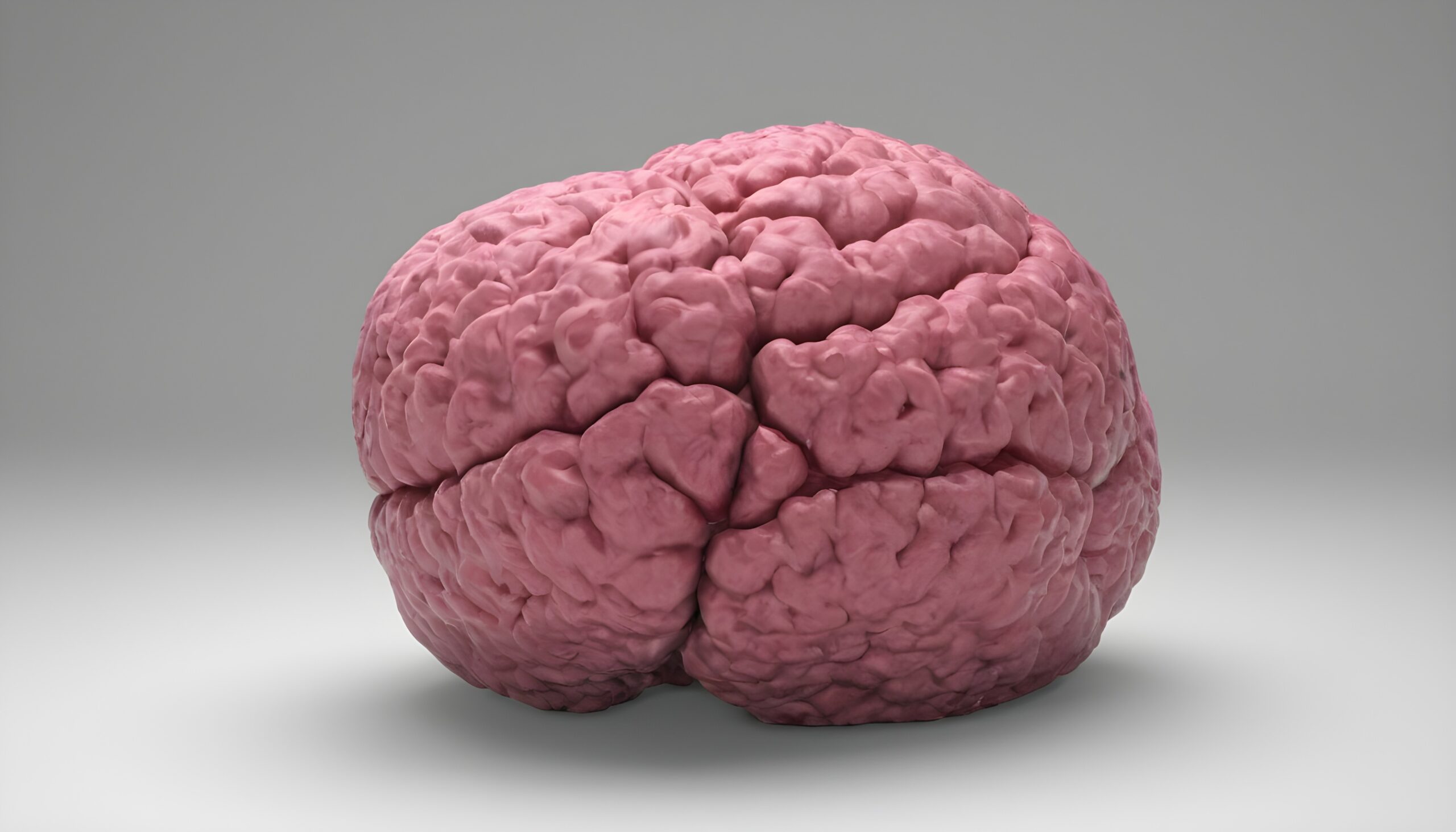The human brain, with its intricate web of neurons and synapses, is the seat of our thoughts, emotions, and behaviors. From the moment of conception, the brain embarks on a remarkable journey of development, shaping and reshaping itself in response to the world around us. This journey, spanning from infancy through adulthood, is marked by profound changes in cognitive, emotional, and social domains, as neural networks undergo a process of maturation and refinement.
In this article, we embark on a captivating exploration of brain development, delving into the intricacies of this journey and uncovering the milestones and transformations that sculpt the evolving landscape of the human mind. From the early stages of infancy, where basic sensory and motor functions lay the foundation for future growth, to the complexities of adulthood, where executive functions and social cognition reach their peak, each stage of development offers unique insights into the workings of the brain and its influence on human behavior.
Throughout this journey, the brain demonstrates remarkable plasticity, allowing it to adapt and respond to a myriad of environmental influences and experiences. From the soothing touch of a caregiver’s hand to the rich tapestry of language and social interactions, each interaction shapes the developing brain, forging new connections and strengthening existing pathways. As neural networks mature, they become increasingly specialized, enabling the brain to perform complex tasks and navigate the complexities of the world with precision and finesse.
At the heart of brain development lies the intricate interplay between nature and nurture. While genetics provide the blueprint for brain structure and function, environmental factors such as parental care, socioeconomic status, and educational opportunities play a critical role in shaping neural circuits and shaping cognitive abilities. From the earliest moments of life, the brain is a sponge, soaking up information from the world around us and using it to sculpt our thoughts, beliefs, and behaviors.
In the pages that follow, we will journey through the stages of brain development, from the miraculous beginnings of infancy to the complexities of adulthood. Along the way, we will explore the key milestones and transformations that mark each stage of development, shedding light on the mechanisms that underlie our cognitive, emotional, and social growth. Through this exploration, we will gain a deeper understanding of the human brain and its remarkable capacity for change, adaptation, and growth across the lifespan.
Infancy:
The journey of brain development commences in infancy, a period characterized by rapid growth and profound structural refinement within the brain. During these formative months and years, neural circuits responsible for fundamental sensory and motor functions undergo crucial maturation, laying the groundwork for the intricate cognitive processes that will unfold in the years to come. Infancy represents a time of remarkable plasticity, during which the developing brain demonstrates unparalleled adaptability, continually reshaping itself in response to the myriad of experiences and interactions encountered within the environment.
One of the primary milestones of infancy is the development of basic motor skills. In the earliest months of life, infants gradually gain control over their muscles and movements, progressing from simple reflexive behaviors to more deliberate actions. Newborns exhibit reflexes such as the grasp reflex, where they instinctively grasp onto objects placed in their hands. As infants grow, they begin to engage in purposeful movements such as reaching, grasping, and eventually crawling and walking. These motor milestones are indicative of the maturation of motor areas in the brain, particularly the motor cortex, which orchestrates the planning and execution of voluntary movements.
In addition to motor development, infancy is a critical period for the emergence of language and communication abilities. While infants may not yet possess the ability to produce speech, they demonstrate a remarkable capacity for language comprehension and communication from an early age. Babies are sensitive to the sounds and rhythms of language, and they begin to recognize familiar voices and respond to verbal cues. Through interactions with caregivers and exposure to language-rich environments, infants gradually acquire the building blocks of language, laying the foundation for future language development.
Emotional bonds formed with caregivers also play a central role in infancy, shaping the infant’s socio-emotional development and laying the groundwork for secure attachments. The bond between infants and their primary caregivers, often referred to as attachment, is characterized by mutual affection, trust, and responsiveness. Secure attachments provide infants with a sense of security and comfort, fostering emotional resilience and facilitating healthy social and emotional development. The formation of these early attachments is facilitated by the release of oxytocin, often referred to as the “love hormone,” which promotes bonding and social connection.
Furthermore, the quality of caregiving and interactions during infancy has a profound impact on brain development. Responsive and nurturing caregiving promotes healthy brain development by providing infants with consistent stimulation, support, and emotional regulation. Positive interactions with caregivers foster the development of neural circuits involved in social cognition, emotional regulation, and stress management, laying a strong foundation for future socio-emotional well-being.
Infancy is a period of remarkable growth and development, during which the foundations of cognitive, emotional, and social competence are established. From the development of basic motor skills to the emergence of language and communication abilities, and the formation of emotional bonds with caregivers, the experiences and interactions of infancy shape the trajectory of brain development and set the stage for future learning, adaptation, and growth.
Early Childhood:
As children transition from infancy into early childhood, their brains continue to undergo remarkable development, characterized by a focus on refining and strengthening neural connections. This critical period is marked by rapid growth in regions responsible for language acquisition, social cognition, and executive functions such as attention and self-regulation. Early childhood represents a time of immense opportunity for learning and brain development, as children engage in increasingly complex activities and social interactions that shape their cognitive, emotional, and social competence.
One of the key milestones of early childhood is the acquisition of language skills. During this period, children experience a surge in language development, gradually acquiring vocabulary, grammar, and syntax through exposure to spoken language in their environment. As they interact with caregivers, peers, and other individuals, children engage in conversations, storytelling, and language-rich activities that promote linguistic proficiency. The development of language skills is facilitated by the maturation of language areas in the brain, such as Broca’s area and Wernicke’s area, which play crucial roles in language production and comprehension.
In addition to language development, early childhood is a pivotal time for the development of social cognition, including the emergence of theory of mind—the ability to understand and attribute mental states to oneself and others. Children begin to recognize that others have thoughts, beliefs, and emotions that may differ from their own, laying the foundation for empathy, perspective-taking, and social understanding. Through interactions with peers and caregivers, children learn to navigate social situations, interpret social cues, and develop relationships based on mutual understanding and cooperation.
Furthermore, early childhood is a critical period for the cultivation of social and emotional competence. As children encounter a wide range of emotions and social experiences, they learn to regulate their emotions, communicate effectively, and develop empathy and compassion for others. Positive relationships with caregivers and peers provide opportunities for emotional support, validation, and social learning, fostering the development of secure attachments and emotional resilience.
The development of executive functions, such as attention, inhibition, and self-regulation, also undergoes significant refinement during early childhood. These cognitive abilities enable children to focus their attention, control their impulses, and regulate their behavior in accordance with social norms and expectations. Executive functions are supported by the maturation of prefrontal cortical regions, which play a central role in cognitive control and decision-making.
Early childhood is a period of rapid growth and development, characterized by significant advancements in language, social cognition, and executive functions. From the acquisition of language skills to the development of theory of mind and social-emotional competence, the experiences and interactions of early childhood lay the foundation for future cognitive, emotional, and social development. By providing children with a nurturing and stimulating environment, caregivers and educators play a crucial role in supporting healthy brain development and promoting positive outcomes for children during this critical stage of life.
Middle Childhood:
As children progress through middle childhood, typically spanning from ages 6 to 12, the brain undergoes further specialization and refinement, building upon the foundational skills acquired during earlier developmental stages. This period is marked by significant advancements in cognitive abilities, social interactions, and emotional development, as children navigate the complexities of the world around them and begin to form a more nuanced understanding of themselves and their environment.
One of the key milestones of middle childhood is the sharpening of cognitive skills, including increased cognitive flexibility, abstract reasoning, and problem-solving abilities. During this period, children demonstrate greater proficiency in tasks that require mental manipulation and logical reasoning, such as mathematical operations, reading comprehension, and scientific inquiry. The maturation of the prefrontal cortex, a region of the brain responsible for executive functions such as planning, decision-making, and impulse control, plays a crucial role in facilitating these cognitive advancements.
In addition to cognitive development, middle childhood is a time of significant social and emotional growth, as children expand their social networks and navigate increasingly complex social dynamics. Peer relationships become increasingly important during this stage, as children form friendships based on shared interests, experiences, and values. Through interactions with peers, children learn valuable social skills such as cooperation, conflict resolution, and empathy, which are essential for building and maintaining positive relationships throughout life.
Furthermore, middle childhood is a period of identity exploration, as children begin to develop a sense of self and establish their place within social and cultural contexts. As they encounter new experiences and challenges, children explore different aspects of their identity, including interests, talents, and values. This process of self-discovery lays the groundwork for the development of a stable and coherent sense of identity in adolescence and beyond.
Academic achievement becomes increasingly important during middle childhood, as children transition from the foundational learning experiences of early childhood to more structured and rigorous educational environments. With the support of teachers, parents, and caregivers, children acquire essential academic skills in literacy, numeracy, and critical thinking, preparing them for future academic success and lifelong learning.
Overall, middle childhood is a period of significant growth and development, characterized by advancements in cognitive, social, and emotional domains. From the sharpening of cognitive skills to the cultivation of peer relationships and the exploration of identity, the experiences of middle childhood lay the foundation for future success and well-being. By providing children with opportunities for exploration, learning, and social interaction, caregivers and educators play a vital role in supporting healthy development during this critical stage of life.
Adolescence:
Adolescence is a pivotal stage in human development, characterized by profound physical, psychological, and social changes as individuals transition from childhood to adulthood. This period, typically spanning from ages 12 to 18, is marked by extensive remodeling and reorganization of the teenage brain, as synaptic pruning and myelination refine neural circuits and optimize brain function. Adolescence is a time of heightened emotional intensity, increased risk-taking behavior, and a quest for independence and autonomy as individuals grapple with complex social and identity-related challenges.
One of the key milestones of adolescence is the development of abstract reasoning and moral reasoning abilities. During this stage, teenagers begin to think more critically and reflectively about complex ideas and moral dilemmas. They demonstrate an increased capacity for abstract thought, allowing them to consider hypothetical scenarios, analyze multiple perspectives, and engage in philosophical debates. This cognitive growth is supported by continued maturation of the prefrontal cortex, which plays a central role in higher-order cognitive functions such as planning, decision-making, and impulse control.
In addition to cognitive development, adolescence is a time of intense self-exploration and identity formation. Teenagers grapple with questions of self-identity, including their values, beliefs, and aspirations, as they seek to establish a sense of who they are and where they fit in the world. This process of identity exploration may involve experimenting with different roles, interests, and social groups, as teenagers strive to define themselves in relation to their peers and society.
Furthermore, adolescence is characterized by the exploration of intimate relationships and the development of social and emotional competence. Teenagers navigate the complexities of romantic relationships, friendships, and peer interactions, learning valuable lessons about communication, empathy, and intimacy along the way. These experiences play a crucial role in shaping teenagers’ social identities and helping them establish healthy and fulfilling relationships in adulthood.
Adolescence is also a time of increased risk-taking behavior, as teenagers seek out new experiences and test the boundaries of their independence. While risk-taking behavior is a normal part of adolescent development, it can also pose significant challenges and risks, particularly when combined with peer pressure and social influence. Caregivers, educators, and communities play a critical role in supporting teenagers during this period, providing guidance, mentorship, and opportunities for positive engagement and growth.
In summary, adolescence is a period of profound change and transformation, characterized by extensive brain development, identity exploration, and social and emotional growth. From the development of abstract reasoning abilities to the exploration of personal values and beliefs, and the establishment of intimate relationships, the experiences of adolescence shape the trajectory of individual development and set the stage for adulthood. By providing teenagers with support, guidance, and opportunities for growth, caregivers and communities can help navigate the challenges of adolescence and foster positive outcomes for teenagers as they transition into adulthood.
Adulthood:
Adulthood represents a period of consolidation and refinement in human development, characterized by the maturation and stabilization of cognitive, emotional, and social skills. As individuals transition into adulthood, typically spanning from the late 20s onwards, the brain continues to mature and refine, albeit at a slower pace than in earlier stages of development. The prefrontal cortex, a region of the brain responsible for higher-order cognitive functions such as self-control, planning, and decision-making, reaches full maturity during this period, enabling adults to exercise greater executive control over their thoughts, emotions, and behaviors.
Cognitive skills such as problem-solving, memory, and attention remain relatively stable in adulthood, with individuals drawing upon their accumulated knowledge and experiences to navigate the complexities of daily life. While cognitive abilities may decline slightly with age, particularly in later adulthood, adults can compensate for these changes through continued learning, mental stimulation, and adaptive strategies. Lifelong learning and intellectual engagement play a crucial role in maintaining cognitive function and promoting cognitive vitality throughout adulthood.
Emotional regulation and social competence continue to evolve during adulthood in response to life experiences and environmental demands. Adults develop greater emotional maturity and resilience, learning to cope effectively with stress, adversity, and interpersonal challenges. The cultivation of social skills and emotional intelligence enables adults to navigate diverse social situations, form meaningful relationships, and contribute positively to their communities and workplaces.
Milestones in adulthood include the attainment of career and personal goals, the establishment of long-term relationships and family bonds, and the pursuit of ongoing learning and personal growth. Adults strive to achieve a sense of fulfillment and satisfaction in their professional and personal lives, balancing career aspirations with personal values and priorities. The establishment of long-term relationships, whether romantic partnerships or familial bonds, provides a source of emotional support, intimacy, and companionship that enriches the adult experience.
Moreover, adulthood is a time of continued personal growth and self-discovery, as individuals pursue new interests, hobbies, and passions throughout their lives. Whether through formal education, career advancement, or creative pursuits, adults seek opportunities for learning, self-expression, and personal fulfillment. The pursuit of ongoing learning and personal growth fosters a sense of purpose and meaning in adulthood, contributing to overall well-being and life satisfaction.
Adulthood is a period of consolidation and growth, characterized by the maturation of cognitive, emotional, and social skills. As individuals navigate the challenges and opportunities of adult life, they draw upon their strengths, experiences, and values to achieve personal and professional fulfillment. By embracing lifelong learning, cultivating meaningful relationships, and pursuing personal growth, adults can thrive and flourish in the journey of adulthood.
The journey of brain development from infancy to adulthood is a dynamic and multifaceted process, characterized by remarkable transformations in cognitive, emotional, and social domains. From the foundational growth of neural circuits in infancy to the refinement of executive functions in adulthood, each stage of development represents a unique chapter in the unfolding story of the human mind. By understanding the milestones and mechanisms of brain development, we gain insights into the factors that shape our cognitive abilities, emotional well-being, and social relationships across the lifespan, paving the way for interventions and support systems that nurture healthy brain development and promote optimal outcomes for individuals of all ages.










More Stories
Inside the Hormonal Symphony: Understanding the Endocrine System
Understanding Gallstones: Causes, Symptoms, and Treatment Options
The Intricacies of Cells: Exploring the Building Blocks of Life